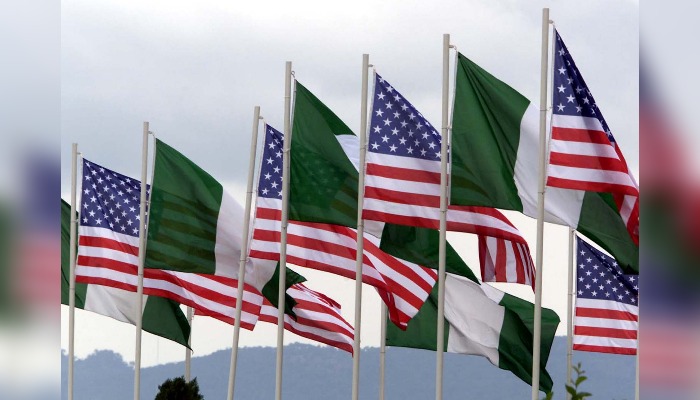Between Washington’s pressure and Abuja’s paralysis
The diplomatic confrontation between Nigeria and the United States over the Trump administration’s recent “Country of Particular Concern” (CPC) designation represents far more than a clash of perspectives on human rights. It exposes, in stark relief, two interlocking failures: Washington’s dangerous impulse to externalise its domestic politics and Abuja’s persistent incapacity to address its own governance and security deficits. Between these poles lies the Nigerian public, trapped in a cycle of violence, impunity, and geopolitical vulnerability.
President Donald Trump’s October 31 announcement on Truth Social, accusing Nigeria of “mass slaughter of Christians by radical Islamists,” resurrected a recurring narrative that conflates complex internal conflicts with religious persecution. This simplification is neither new nor benign. It risks placing Nigeria within a familiar Western script, one where African instability is viewed through a moral lens that justifies external intervention. For Trump, it also serves a domestic purpose: to reassure evangelical constituencies that his administration stands as a global protector of Christianity. What is troubling, however, is the speed with which a nuanced internal crisis has been transformed into an international security issue.
Nigeria’s government has rightly rejected the CPC designation as inaccurate and politically motivated. Yet its defensive posture lacks credibility precisely because it has for too long ignored the structural conditions that make such external accusations plausible. The reality is that Nigeria’s failure to prosecute perpetrators of violence, strengthen its justice system, and address the socio-economic roots of insecurity has left ample room for mischaracterisation. When the state tolerates serial massacres, ungoverned spaces, and the proliferation of armed groups, it forfeits the moral high ground to protest when outsiders question its competence or motives.
The CPC designation carries serious implications beyond diplomacy. It introduces the potential for sanctions under the Global Magnitsky Act, targeting financial and travel restrictions that could directly affect senior government officials and politically exposed persons. Already, Nigeria’s markets have registered unease, with investors pricing in the risk of sanctions and capital flight. The perception that Nigeria has become a flashpoint in Washington’s culture wars undermines investor confidence, destabilises the naira, and threatens to isolate the country in critical security partnerships.
But Washington’s approach is no less reckless. It reflects a troubling pattern in U.S. foreign policy, one that conflates moral posturing with strategic engagement. By framing Nigeria’s internal security crisis as religious genocide, the Trump administration risks deepening the very sectarian divisions it claims to oppose. More dangerously, its threat of “force if necessary” resurrects the spectre of neo-colonial paternalism at a time when global South–North relations demand sensitivity and respect for sovereignty. Genuine allies do not threaten force over disputed narratives; they invest in helping fragile democracies build institutions that can manage diversity and enforce accountability.
Ironically, the U.S. threat has achieved what Nigeria’s political class has not: a momentary unity among its deeply divided religious and political blocs. From Sheikh Ahmad Gumi to senior Christian leaders, voices across the spectrum have converged on one point, that Nigeria must defend its sovereignty. Yet sovereignty is not a shield for failure. A government that cannot secure its people or uphold justice cannot meaningfully invoke sovereignty as protection from external criticism.
The federal government’s response, articulated through the Ministry of Foreign Affairs and echoed by senior officials, has been defensive rather than transformative. Beyond dismissing the allegations, Abuja has yet to outline a credible plan to address the underlying governance failures that fuel perceptions of complicity. Without demonstrable action, prosecutions of perpetrators, transparency in security expenditure, and institutional reform, the state’s denials will ring hollow both at home and abroad.
For Nigeria, the way forward lies not in diplomatic brinkmanship but in strategic restoration. The government must urgently re-establish its legitimacy through three mutually reinforcing imperatives.
First, it must restore accountability in the security sector by ending the culture of impunity that allows mass killings to go unpunished. Second, it must rebuild trust between the state and its citizens through transparent communication and demonstrable protection of all communities, regardless of faith or ethnicity. Third, it must reorient diplomacy from reaction to initiative, engaging allies proactively, not merely rebutting accusations.
Nigeria should also resist the temptation to outsource its response to expensive lobbying firms that trade in influence rather than substance. Reputation cannot be bought abroad; it must be earned at home through credible governance. The country’s most effective defence against external interference is internal reform, strengthening institutions, prosecuting wrongdoers, and affirming the rule of law.
The United States, for its part, must recognise the limits of moral absolutism in international relations. Nigeria’s challenges are real, but they are not reducible to religious binaries. Washington’s policy toward Africa must evolve from punitive classification to constructive partnership, supporting local capacity rather than undermining it through coercion.
Ultimately, this diplomatic standoff should serve as a mirror, not a battlefield. The United States must reflect on its tendency toward interventionist moralism, while Nigeria must confront the self-inflicted weaknesses that invite such interventions. Sovereignty, after all, is not merely a right; it is a responsibility. The surest way for Nigeria to assert its independence is not through defiance but through competence, accountability, and justice that no foreign power can dispute.

